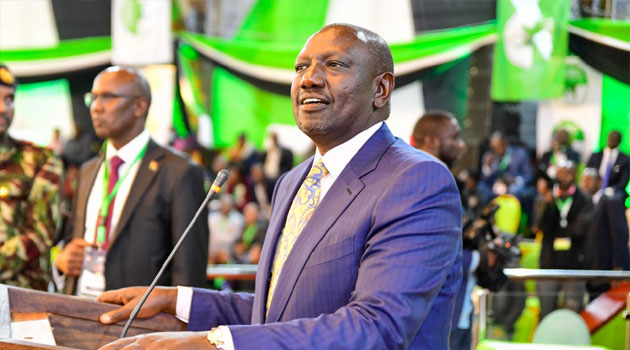NAIROBI, Kenya, Aug 17 – Spiralling prices, endemic corruption and a mammoth debt mountain: Kenya’s president-elect and “hustler in chief” William Ruto will face a raft of challenges when he takes office.
– Inflation –
The battle to make ends meet was uppermost on many voters’ minds in the August 9 vote, with the war in Ukraine sending prices of basic goods skyrocketing.
Inflation hit a five-year high of 8.3 percent in July, with increasing food costs the main contributor.
As the crisis bit, the government in May raised the minimum wage by 12 percent.
Last month it pledged subsidies to halve the price of maize (corn) flour used to prepare ugali, a dense porridge that is Kenya’s staple food.
But such measures are temporary, “populist and “simplistic”, said Jared Osoro, an economist at the University of Nairobi.
Kenya’s economy shrank in 2020 as a result of the Covid-19 pandemic before expanding 7.5 percent last year, but the World Bank is forecasting growth to slow to 5.5 percent this year.
Kenya usually imports a fifth of its grain from Russia and 10 percent from Ukraine, according to official figures.
Agriculture — the backbone of the economy that contributes over 20 percent to GDP — is also threatened by a punishing drought.
– Debt mountain –
By 2050, half of Kenya’s population will live in cities, which will lead to “a myriad of challenges” including providing education and healthcare, according to British charity Oxfam.
It says more than a third of Kenya’s 17 million poor live in urban areas, mostly in informal settlements.
Successive governments since 2008 have pursued an ambitious programme dubbed Kenya Vision 2030 that focuses on major infrastructure projects.
As a result, debt has more than quadrupled to about $70 billion during outgoing President Uhuru Kenyatta’s near decade in office — amounting to nearly two-thirds of Kenya’s GDP in 2021.
China is now Kenya’s second largest creditor after the World Bank, notably lending $5 billion for a railway linking Nairobi to the Indian Ocean port of Mombasa.
The International Monetary Fund (IMF) said Kenya’s economic turnaround and improved tax revenues made it more resilient to external “shocks”.
Even so, “Kenya remains at high risk of debt distress”, IMF mission chief Mary Goodman warned last month.
– Corruption –
Kenya’s fight against graft has “stagnated”, says Transparency International, which ranked it 128th out of 180 in its 2021 corruption perceptions index.
Last year, Kenyatta said at least two billion shillings ($16.8 million) was stolen each day from the government.
Kenya’s Ethics and Anti-Corruption Commission (EACC) linked around 240 candidates in this year’s election to graft or economic crime.
And last month a court ordered Ruto’s incoming deputy Rigathi Gachagua to forfeit almost $1.7 million that had been frozen in a corruption probe, saying he had failed to explain its source.
Dozens of senior officials have been charged since 2018, including ex-finance minister Henry Rotich.
– Youth ‘time bomb’ –
With three quarters of the population under the age of 34, young people are one of Kenya’s key assets, but many struggle to find jobs.
About 500,000 students obtain a higher education diploma every year. But corruption, nepotism or the demand for experience are all obstacles to their entry into working life.
According to census figures published in 2020, five million young people were without jobs.
The youth are a “demographic, social and economic time bomb”, says independent public policy researcher Alex Awiti.
He called for greater government incentives for the private sector and job training, in a nation where 80 percent of the workforce is in the informal sector.
– Uniting the nation –
Ruto pledged to work with “all leaders” after his victory, although defeated rival Raila Odinga said he would pursue all “constitutional and legal options” against the vote outcome.
Disputes over previous elections have stoked deadly violence, particularly after the 2007 poll when more than 1,100 people were killed in inter-ethnic clashes.
Tribal politics have long been a feature of Kenyan elections, but Ruto said economic issues as much as “ethnic configurations” had been at play this year.
For the first time since 2002, the next head of state will not be from the Kikuyu tribe, the biggest of Kenya’s more than 40 ethnic groups and the most politically and economically influential.
But Ruto, who is a Kalenjin, nevertheless chose a Kikuyu as his running mate.




















Discussion about this post